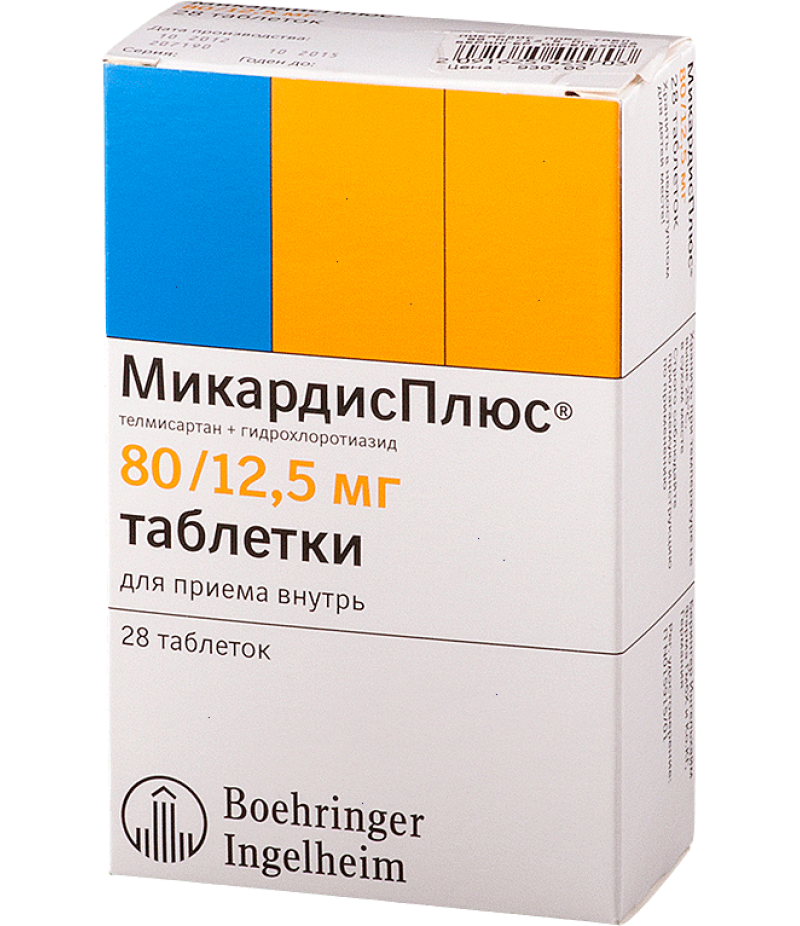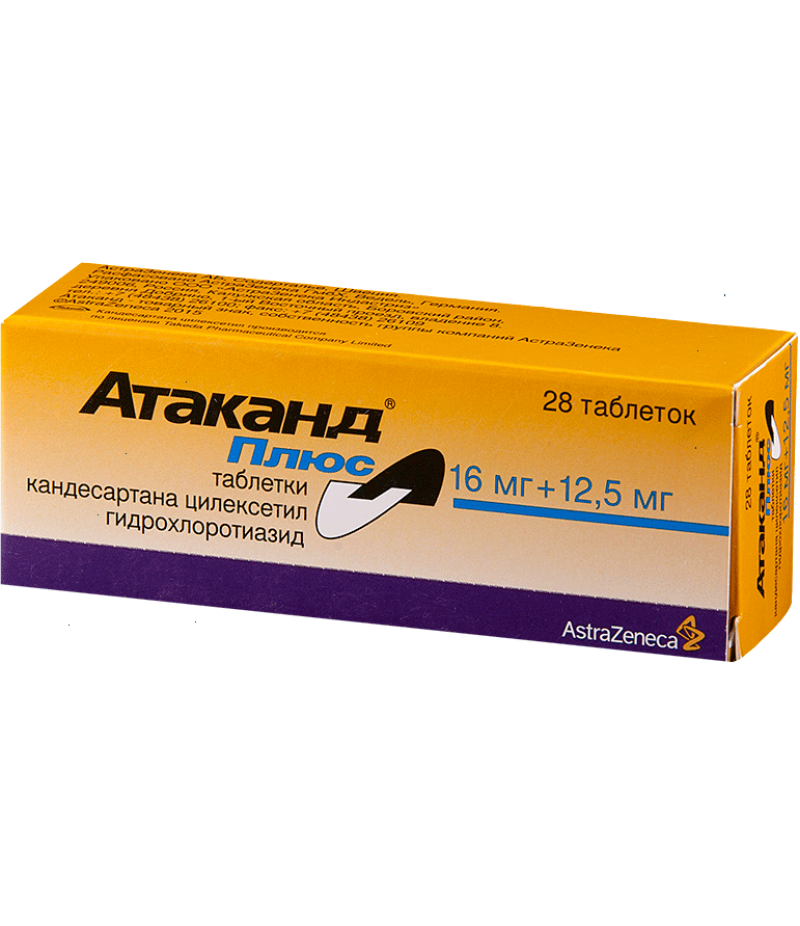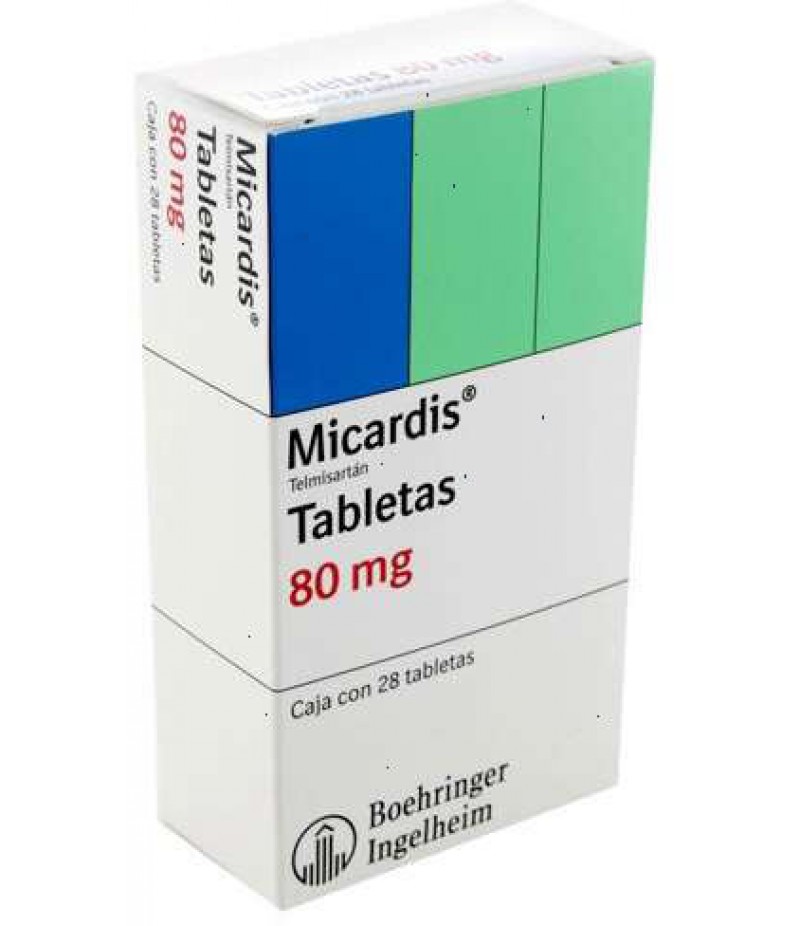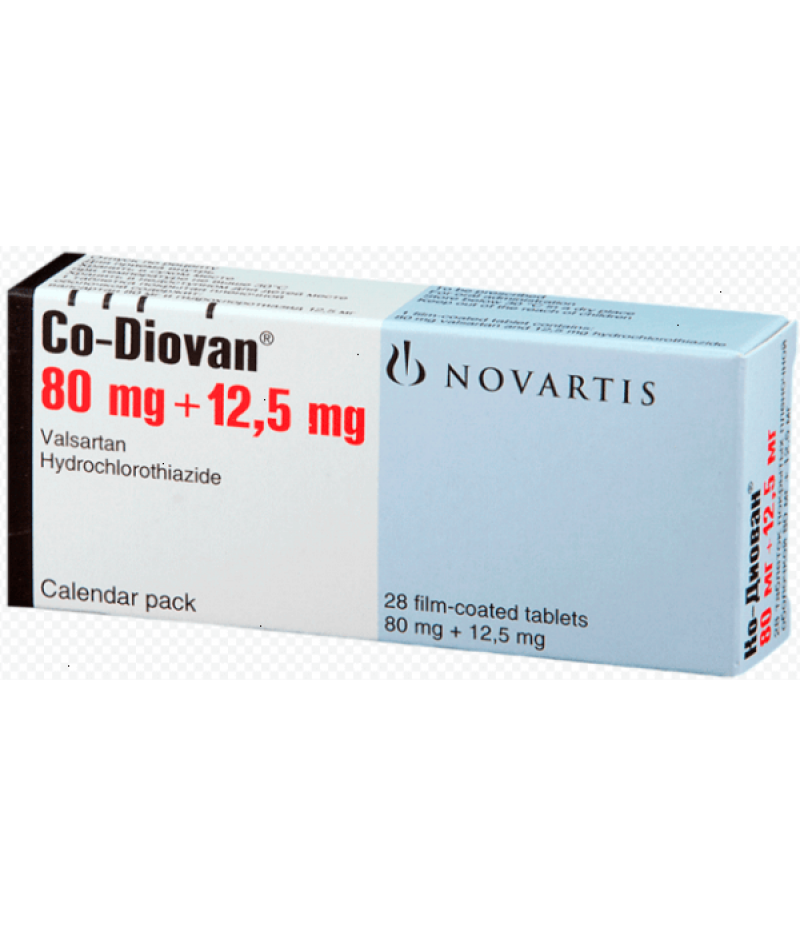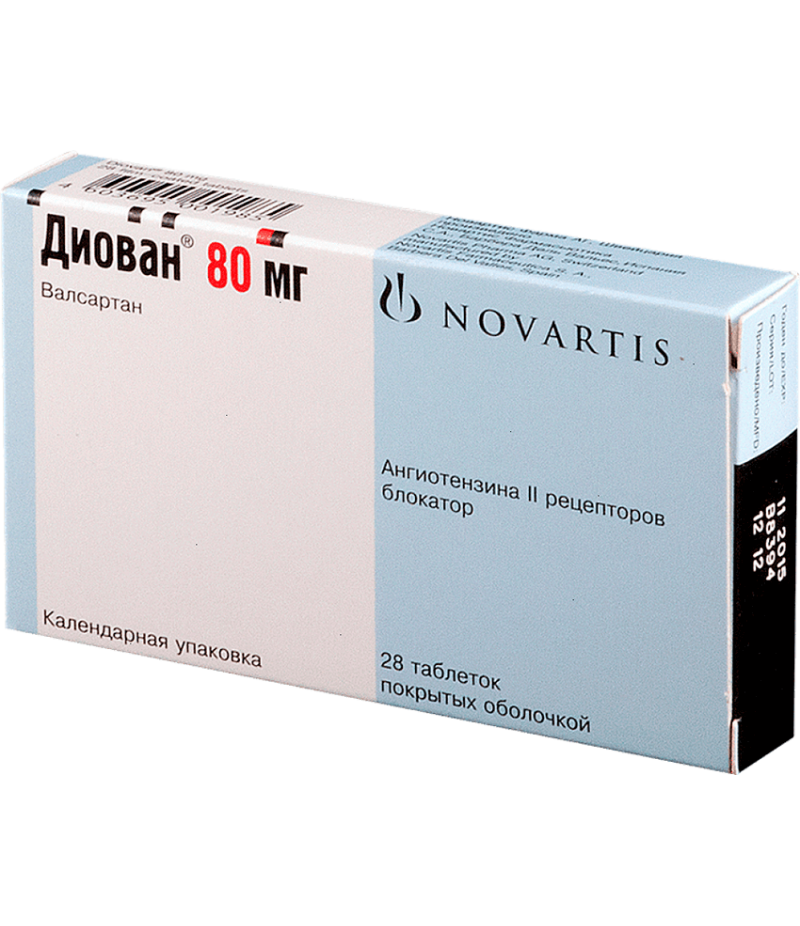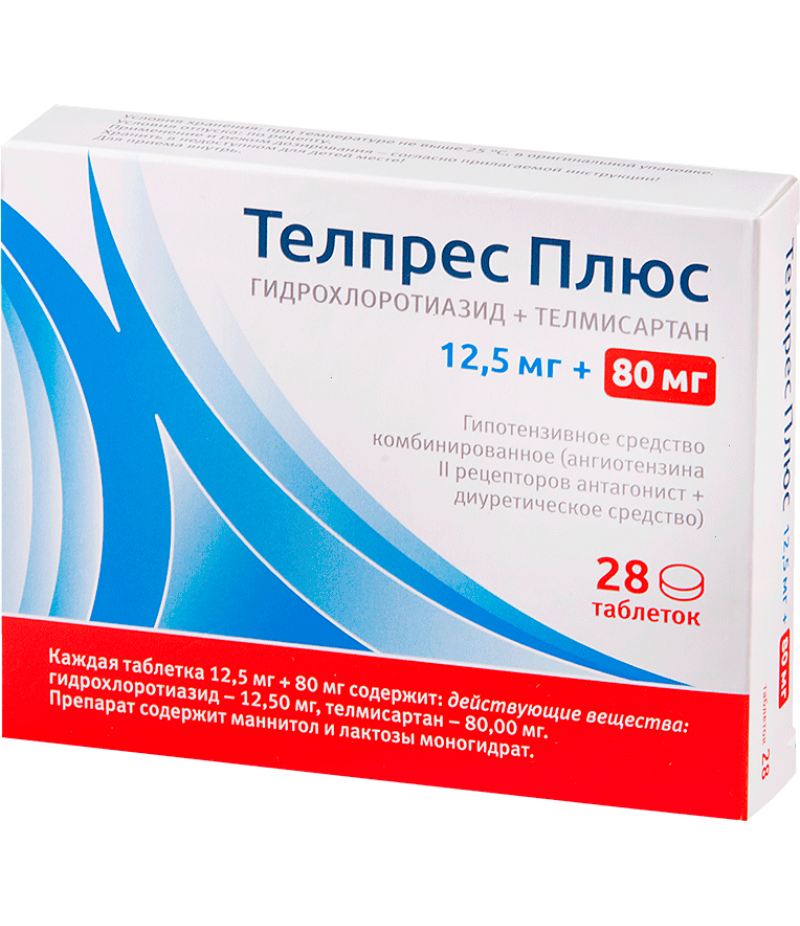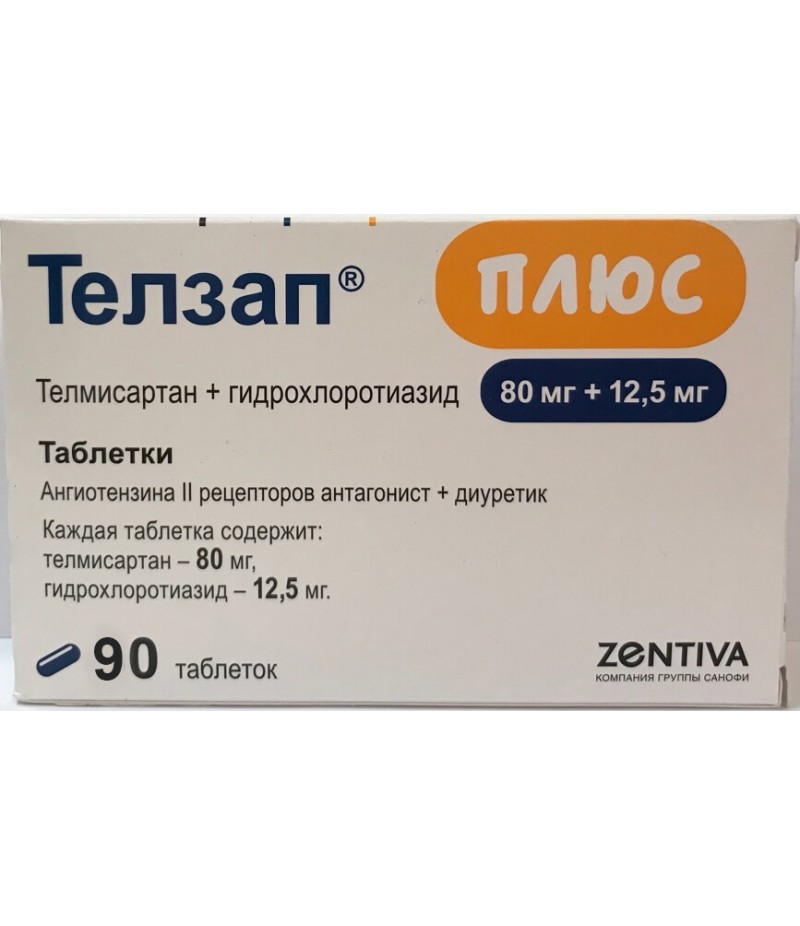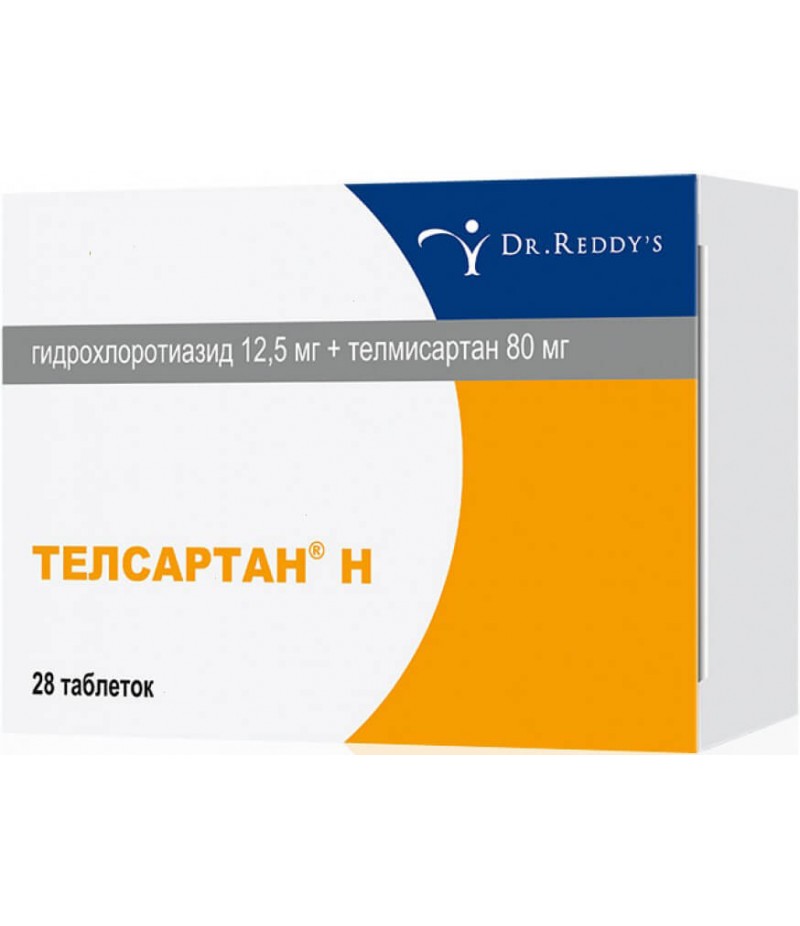Micardis Plus tabs 80mg/12.5mg #28
- $40.70
- 3 or more $39.50
- Availability:In Stock
Micardis Plus instructionYou can buy Micardis Plus hereCompositionOne tablet of Micardis Plus contains 40 or 80 mg of telmisartan and 12.5 mg of hydrochlorothiazide.Excipients: sodium hydroxide, meglumine, povidone, sorbitol, magn..
Tags: tabs
Micardis Plus instruction
You can buy Micardis Plus here
Composition
One tablet of Micardis Plus contains 40 or 80 mg of telmisartan and 12.5 mg of hydrochlorothiazide.
Excipients: sodium hydroxide, meglumine, povidone, sorbitol, magnesium stearate, lactose monohydrate, iron oxide red, microcrystalline cellulose, sodium carboxymethyl starch, corn starch.
Form of issue
The preparation Micardis Plus is biconvex, oval, tablets, two-layered on a cut, on a white surface an engraving "Н4" and a logo of the manufacturer.
pharmachologic effect
Has a combined hypotensive effect.
Pharmacodynamics and pharmacokinetics
Pharmacodynamics
Micardis Plus is a combination of telmisartan (an angiotensin II receptor blocker) and hydrochlorothiazide (a thiazide type diuretic). Joint use of these components causes a stronger antihypertensive effect than using them separately. Taking the drug 1 time per day leads to a pronounced gradual decrease in pressure.
Telmisartan is a selective blocker of angiotensin receptors of the second type. Has a high affinity for the angiotensin II receptors of the AT1 subtype. It displaces angiotensin II from the receptor. Binding is long-term in nature. Telmisartan does not block other receptors (including AT2-type receptors) of angiotensin. Telmisartan also reduces the synthesis of aldosterone.
In persons with arterial hypertension, 80 mg of telmisartan per day completely suppresses the effects of angiotensin II. The onset of action occurs three hours after ingestion. The action lasts for a day. The permanent antihypertensive effect is fixed one month after the regular use of telmisartan.
Hydrochlorothiazide is a thiazide type diuretic. It affects the reverse absorption of electrolytes in the kidney canals, directly increasing the excretion of sodium and chlorides. This causes a decrease in the volume of circulating blood, an increase in the activity of renin, an increase in the synthesis of aldosterone.
After applying hydrochlorothiazide, diuresis rises after two hours, and the maximum effect is achieved in four hours and persists for 6-12 hours.
Pharmacokinetics
Telmisartan. Quickly absorbed from the digestive tract. The maximum concentration of telmisartan occurs within an hour. Bioavailability is 50%.
Response with blood proteins - more than 99.5%. Metabolised by interaction with glucuronic acid. The derivatives of telmisartan are pharmacologically inactive.
The half-life is about 20 hours. It is excreted with feces in its original form and with kidneys - up to 2%.
The pharmacokinetics of telmisartan in elderly people does not differ from patients of younger age. Dosage is not required.
Hydrochlorothiazide. After oral administration of hydrochlorothiazide, the maximum concentration is achieved after 1-2 hours. Bioavailability reaches 60%.
Reaction with plasma proteins - 64%. It is not metabolized and is excreted through the kidneys unchanged.
Indications for use
Arterial hypertension (if monotherapy with telmisartan or hydrochlorothiazide is ineffective).
Contraindications
The drug has the following contraindications:
violation of patency of the biliary tract;
severe violations of the liver or kidneys;
refractory hypercalcemia, hypokalemia;
intolerance to fructose;
deficiency of lactase and intolerance to galactose or lactose;
age is less than 18 years;
lactation;
pregnancy;
an allergy to the components of the drug.
Carefully:
stenosis of both renal arteries, severe kidney damage;
violations of the liver or progressive liver damage;
hyperkalemia;
hypovolemia after treatment with diuretics, as well as after limiting the intake of salt, vomiting, or diarrhea;
chronic heart failure, functional class III-IV;
stenosis of the mitral and aortic valve;
condition after kidney transplant;
obstructive cardiomyopathy;
primary aldosteronism;
diabetes;
gout.
Side effects
On the part of the respiratory system: dyspnea, respiratory distress syndrome.
On the part of the circulatory system: tachycardia, arrhythmias, bradycardia, a strong decrease in pressure.
From the nervous system: fainting, paresthesia, dizziness, insomnia, anxiety, depression, excitability, headache.
On the part of the digestive system: flatulence, diarrhea, dry mouth of the mucous membranes, abdominal pain, constipation, gastritis, hypercholesterolemia, hyperglycemia, pancreatitis, jaundice, dyspepsia.
From the skin: sweating.
From the musculoskeletal system: muscle spasms, arthralgia, myalgia, arthrosis, chest pain.
On the part of the hematopoiesis system: leukopenia, eosinophilia, anemia, neutropenia, thrombocytopenia, thrombocytopenia.
From the genitourinary sphere: renal failure, nephritis, glucosuria.
From the side of the eyes: visual impairment, glaucoma, xanthopsia, acute myopia.
Infections: sepsis, respiratory tract infections (pharyngitis, bronchitis, sinusitis), inflammation of the salivary glands.
Metabolic disorders: increased creatinine, hepatic enzymes, creatine phosphokinase, uric acid in the blood, hypertriglyceridemia, hyperkalemia, hypokalemia, hypoglycemia, hyponatremia, decreased hemoglobin.
Allergic reactions: skin itching, angioedema, rash, erythema, anaphylactic reactions, eczema, systemic vasculitis, necrotizing vasculitis.
Instruction on Micardis Plus
Please reed the instruction before buy Micardis Plus.
Instructions for use recommend taking the drug inside one tablet once a day, regardless of the meal.
Micardis Plus can be used by patients in whom the preparation of Micardis or hydrochlorothiazide does not cause a decrease in pressure.
In patients with severe forms of arterial hypertension, the maximum dose of telmisartan is 160 mg per day.
Overdose
Cases of overdose are not described.
Possible signs of a telmisartan overdose: severe pressure reduction, tachycardia, bradycardia.
Possible signs of an overdose of hydrochlorothiazide: violations of the water-salt balance of blood, hypovolemia, arrhythmias.
Treatment: symptomatic.
Interaction
With the joint use of telmisartan with:
other antihypertensive drugs - it is possible to increase the strength of antihypertensive action;
with lithium preparations - a temporary increase in the lithium content in the blood is possible;
non-steroidal anti-inflammatory drugs - there may be acute renal failure in patients with a reduced volume of circulating blood;
digoxin - it is possible to increase the concentration of digoxin in the blood by 20%.
With the simultaneous use of hydrochlorothiazide with:
barbiturates, ethanol or opioid analgesics - possibly the development of orthostatic hypotension;
Metformin - development of lactic acidosis is possible;
hypoglycemic agents and insulin - correction of doses of hypoglycemic drugs is necessary;
colistramine and colestipol - inhibition of hydrochlorothiazide absorption is possible;
nondepolarizing myoreklaksantami - it is possible to enhance their effect;
cardiac glycosides - hypokalemia or hypomagnesemia may develop;
anti-gouty agents - it is possible to increase the content of uric acid in the blood.
preparations of calcium - it is possible to increase the concentration of calcium in the blood due to inhibition of its secretion by the kidneys.
amantadine - there may be an increased risk of developing unwanted effects of amantadine;
m-holinoblokatorami (atropine, biperidenom) - it is possible to weaken the motility of the intestine, increase the bioavailability of thiazide diuretics;
non-steroidal anti-inflammatory drugs - it is possible to weaken the diuretic and antihypertensive action.
Storage conditions
Keep away from children. Store at temperatures up to 25 degrees.
Shelf life - three years.
special instructions
In patients with coronary heart disease, the use of any pressure-lowering agent, in the case of a strong decrease in pressure, may lead to the development of a myocardial infarction or brain.
Micardis Plus has a weaker therapeutic effect in people of the Negroid race.
When driving vehicles should be aware of the possibility of dizziness and drowsiness in the field of taking the drug.
Children
The use of funds for persons under the age of 18 is prohibited.
During pregnancy (and lactation)
The condition of lactation or pregnancy is a contraindication for taking the drug.
Reviews of Micardis Plus
The reviews indicate a more pronounced therapeutic effect of the drug compared to mere Micardis, especially when the latter is ineffective.

